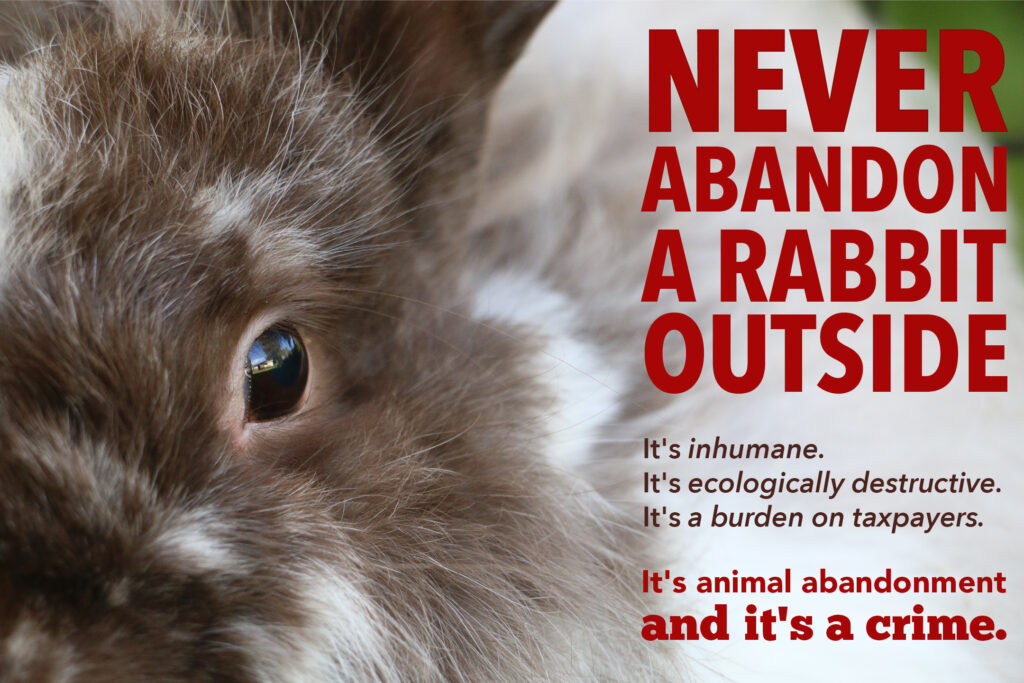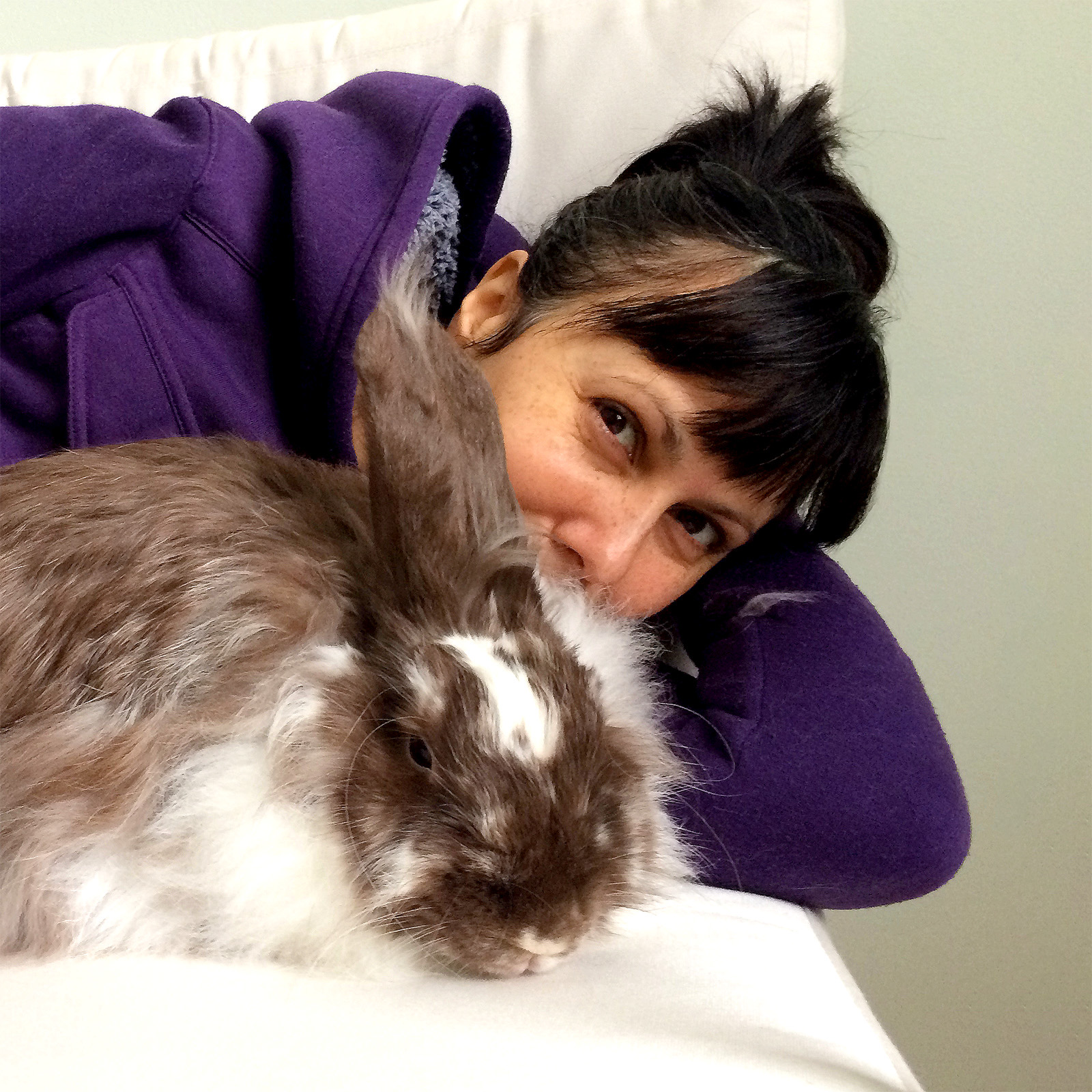Never release a pet rabbit outside. Releasing a domestic animal into the wild is a crime. Unfortunately, every year, too many rabbit guardians decide to abandon their pets outdoors. They may believe the rabbit can survive and thrive in the wild. The reality is that domesticated rabbits can not survive in the wild. The animals will suffer and die, while costing taxpayers tens of thousands of dollars to mitigate the problems they cause.
Out of the many different types of rabbits and hares the only rabbit to be widely domesticated is the European rabbit (genus Oryctolagus). Although we see a wide variety of sizes, colors and body shapes, all of our pet rabbits are descended from these European rabbits.
The European rabbit is a different genus from our native Eastern cottontail rabbits, Desert cottontail, Marsh rabbit, or Swamp Rabbit (all genus Sylvilagus) or hares and jackrabbits (genus Lepus) and can not successfully breed with these other rabbits.
There are many differences between European rabbits and Eastern cottontail rabbits but perhaps the most important difference is this: European rabbits have been selectively bred and domesticated by humans for centuries while Eastern cottontail rabbits are wild animals, not domesticated.
This means Eastern cottontail rabbits have evolved over time to live in the wild, with all the skills and cunning that living in the wild for millions of generations has bestowed upon them.
In contrast, European rabbits have been domesticated by humans since ancient Rome, and have been refined via selective breeding over generations for appearance, quality of fur, or other human uses. For hundreds of years these rabbits have been dependent upon humans to feed and house them. They lack the ability to survive in the wild.
When pet rabbits are abandoned outside the end result is suffering followed by death. They are the easiest of prey for predators. They die in traffic. If they live long enough they become infested with ticks, mites, fleas, and botflies. They become diseased and they spread deadly diseases such as RHD to other rabbits . They starve.
When predators are few and a food source exists a terrible domino effect can occur. Two original rabbits reproduce in exponential numbers, quickly creating a population of hundreds or even thousands of stray animals.
Two or three abandoned rabbits left to reproduce will quickly become a colony of unwanted rabbits, causing a huge crisis for taxpayers and the environment. There are multiple costs associated with these rabbit colonies. These colony rabbits are not happy or healthy. The animals suffer and die in numerous ways. Taxpayers end up spending tens of thousands of dollars trying to address the problem. Volunteers and humane groups spend countless hours trying to reduce suffering and stop the population growth. Controlling one rabbit colony can take years.
Many people are aware of the problem of rabbit colonies in Australia. But rabbit colonies exist much closer to home and are on the increase. Because so many people have abandoned their pet rabbits, rabbit colonies exist across the United States and Canada, overwhelming local governments and volunteer efforts.
Releasing domestic animals into the wild is animal abandonment and is a crime. Abandoning a pet rabbit isn’t only illegal, It’s unethical. It’s ecologically destructive. It’s inhumane. It’s a burden on taxpayers, city services, humane organizations and good Samaritans.
Inadequate education prior to acquiring a rabbit is one of the primary causes of abandonment. If you, or someone you know is interested in bringing a rabbit home learn about caring for rabbits first. Learning about what to expect beforehand will increase the chances of making a good decision that you — and the rabbit — can live with.
Never, under any circumstance, abandon a domestic animal outside. Report anyone who does to the local authorities because it is a crime. To find a new home for an animal contact local humane organizations, rescue or sanctuary organizations, or local animal control. These organizations exist to help unwanted animals in a humane way.
Sources & More info:
- Flyer: 9 Reasons to Keep your Bunny Indoors (pdf)
- Feral Bunnies Are Taking Over Las Vegas from Atlas Obscura
- News Report: Why B.C. Rabbits Are Being Airlifted To Texas
- Background on rabbits and hares from Wikipedia

